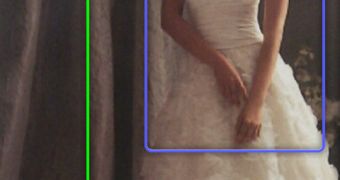Google's visual search is slowly advancing and the latest version of the Google Goggles app comes with a couple of interesting additions and overall improvements. The latest update can scan bar codes a lot faster, so you can look up products online, and can now recognize printed ads in magazines and newspapers.
But by far the coolest new feature is that it can help you cheat on Sudoku or help you out when you're stuck, whichever way you prefer to look at it.
"We’re launching a new version of Google Goggles that’s faster and smarter than ever before. The new Goggles 1.3 client for Android can scan barcodes almost instantly. All versions of Goggles can now recognize print ads in popular magazines and newspapers. Finally, Goggles has also learned a fun new trick for Sudoku fans," Google announced.
With each new update, the app gets better. Goggles is one of the most interesting and certainly one of the most potentially useful search products Google has lined up.
Already, Goggles can recognize a lot of objects and is actually useful in some situations. It can recognize artwork, landmarks and products, but it does much worse with things like plants, animals and so on.
Besides recognizing objects, one of the interesting features is the ability to make out and even translate text found in the real world. And it can now recognize any ad in an US magazine or newspaper printed in the past several months and forwards.
Already, with things like translations, Goggles goes beyond simple search and actually provides direct answers to peoples' problems. The latest update takes it one step further with a feature that may not prove to be the most useful, but it's certainly interesting, solving Sudoku puzzles.
The feature is not that complex, Goggles already had the capability to recognize text. Sudoku puzzles should be fairly easy to distinguish and are no problem to solve with the amount of computing power at Google's disposal. But it does showcase the potential of technologies like Goggles, to help in any number of real-world situations, as soon as its recognition capabilities improve.

 14 DAY TRIAL //
14 DAY TRIAL //